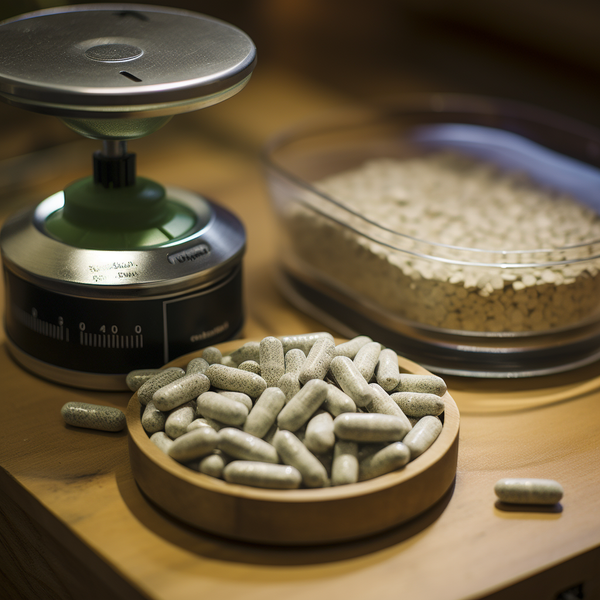
Understanding Iodine: Its Role, Benefits, and Recommended Intake
What is Iodine?
Iodine is a vital trace element that is indispensable for normal growth and brain development. A balanced diet with adequate iodine is pivotal for health, yet an imbalance—either too much or too little—can lead to severe health complications. According to the latest research, most Australians have sufficient iodine in their diets, although pockets of deficiency exist.

The Role of Iodine in the Human Body
Iodine serves as a cornerstone for thyroid health. The thyroid gland, located in the neck, utilizes iodine to produce the hormone thyroxine. This hormone regulates various cellular processes, impacting the growth of bones and nerves and the metabolism of proteins, fats, and carbohydrates.
Moreover, iodine is crucial for cognitive development, sensory perception, alertness, and coordination, especially in infants and young children.
Sources for Further Reading:
Iodine : Health Professional NIH

Recommended Daily Intake Across Different Life Stages
Achieving the correct iodine intake is crucial for optimal health. Below is a chart representing the recommended daily intake in micrograms (mcg) across different life stages:
| Stage of Life | Recommended Iodine Intake (mcg/day) |
|---|---|
| Infants (0–6 months) | 90 |
| Infants (7–12 months) | 110 |
| Children (1–8 years) | 90 |
| Pre-Teens (9–13 years) | 120 |
| Adolescents (14–18 years) | 150 |
| Adults | 150 |
| Pregnant Women | 220 |
| Breastfeeding Women | 270 |

How to Achieve Sufficient Iodine Intake
A well-balanced diet can provide sufficient iodine. Foods rich in iodine include:
- Seafoods like oysters, snapper, and seaweed (such as kelp, nori, kombu, and wakame)
- Dairy products such as milk and yogurt
- Bread fortified with iodine (Most commercially prepared bread contains very little iodine)
- Eggs (1x large boiled egg can have around 26mcg)
Additionally, many salts are iodized, and you can confirm this by checking the packaging label.
Tip: Be wary of excessive iodine intake, especially from supplements, as it can be harmful, particularly for those with thyroid issues.

Special Considerations: Pregnancy and Iodine
Iodine's role extends to ensuring healthy pregnancies. Inadequate iodine levels can significantly increase the risk of miscarriage and result in developmental issues in the child.
The NHMRC recommends that pregnant and breastfeeding women take an iodine supplement of 150 mcg/day. Always consult your healthcare provider before starting any supplementation, especially if you have pre-existing thyroid conditions.

Managing Thyroid Disorders with Iodine
For those dealing with thyroid disorders, a balanced iodine intake can play a crucial role in management. Both excess and deficiency can exacerbate thyroid issues, so consult a healthcare provider for personalized advice.

Consequences of Long-Term Iodine Deficiency or Excess
Long-term consequences of iodine imbalance can include:
- Extreme tiredness and fatigue
- Feeling unusually cold
- Cognitive impairments
- Hair loss
- Development of a goitre

Actionable Steps for Monitoring Iodine Levels
- Regular Check-ups: Regular thyroid function tests can indicate iodine levels.
- Diet Analysis: A dietitian can help you adjust your food choices.
- Consult Healthcare Providers: Speak with healthcare providers before initiating or altering iodine supplements.

Iodine's Molecular Weight
The molecular weight (also known as the molar mass) of iodine (I) is approximately 126.90447 grams per mole (g/mol). This refers to a single atom of iodine. Iodine commonly exists as a diatomic molecule (I₂) in its elemental form, and the molecular weight of I₂ would be approximately 253.80894 g/mol.

Conclusion
Maintaining adequate iodine levels is vital for general well-being and particularly crucial during certain life stages such as pregnancy. By monitoring your iodine levels and consulting healthcare providers, you can ensure that you are on the path to optimal health.

FAQ's
Q.1.What is the role of iodine in the human body?
Iodine is essential for thyroid health and is used by the thyroid gland to produce the hormone thyroxine. This hormone regulates cellular processes such as bone and nerve growth, as well as the metabolism of proteins, fats, and carbohydrates.
Q.2. What are the recommended daily iodine intake levels for adults?
The recommended daily intake of iodine for adults is 150 micrograms (mcg) per day.
Q.3. What foods are rich in iodine?
Foods rich in iodine include seafood like oysters and snapper, dairy products such as milk and yogurt, iodine-fortified bread, and eggs.
Q.4. Are there special iodine considerations for pregnant and breastfeeding women?
Yes, pregnant women are advised to have 220 mcg/day and breastfeeding women 270 mcg/day. The NHMRC recommends an iodine supplement of 150 mcg/day for these groups. Consult your healthcare provider before starting any supplements.
Q.5. What can happen if there is a long-term iodine deficiency or excess?
Long-term iodine imbalance can lead to extreme tiredness, feeling unusually cold, cognitive impairments, hair loss, and the development of a goitre.
Sources: Food Standards Australia New Zealand, NHMRC, Australian Thyroid Foundation, Australian Institute of Health and Welfare, NSW Health, Nutrients Journal, Thyroid Foundation

Another Fascinating Application: The Role of Povidone-Iodine in Healthcare and Daily Life
In our ongoing exploration of iodine's multifaceted roles, it's worth diverting our attention to yet another exceptional application that often goes underappreciated: Povidone-iodine as a topical antiseptic. This wonder formulation, a complex of iodine and povidone, is celebrated for its safety and efficacy in skin disinfection.
Povidone-iodine is a broad-spectrum antiseptic that effectively neutralizes bacteria, fungi, and certain viruses upon contact. It has garnered widespread use for minor wound care, preoperative skin preparation, and a plethora of other medical scenarios necessitating a sterile environment. What distinguishes Povidone-iodine from elemental iodine are its user-friendly attributes: reduced skin irritation and minimal staining. Its unique chemical properties also allow for better adherence to the skin, resulting in a more durable protective barrier. This is especially advantageous in surgical contexts, where maintaining a sterile field is crucial for patient outcomes.
So, the next time you encounter a Povidone-iodine solution in a healthcare setting or perhaps even in your home's first-aid kit, you can appreciate it as another splendid testament to iodine's versatility. It not only underscores iodine's essential role in our diets but also amplifies its indispensable contributions to healthcare and daily well-being.

Disclaimer
The information in "Understanding Iodine: Its Role, Benefits, and Recommended Intake" is for educational purposes only and should not replace professional medical advice. Always consult your healthcare provider for medical conditions or treatment. We disclaim any liability for any harm resulting from the use of this article.

Leave a comment